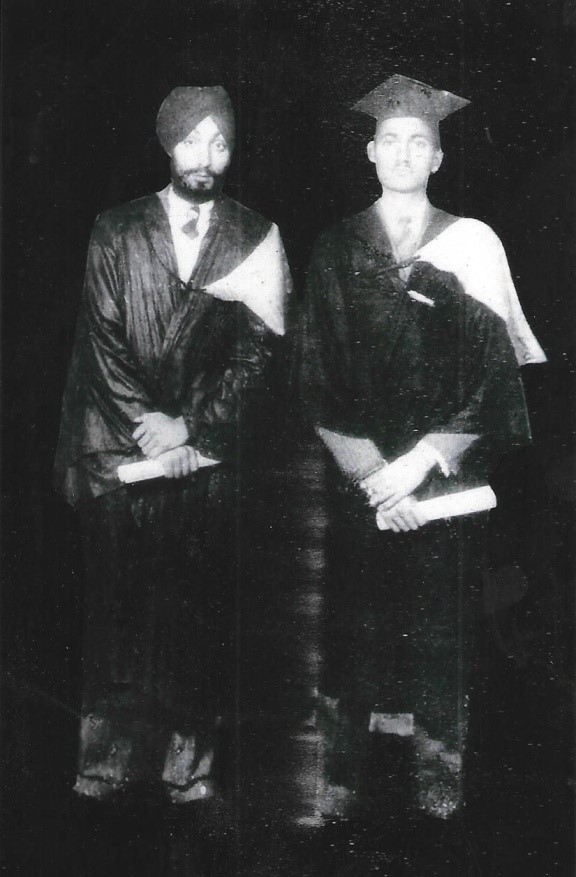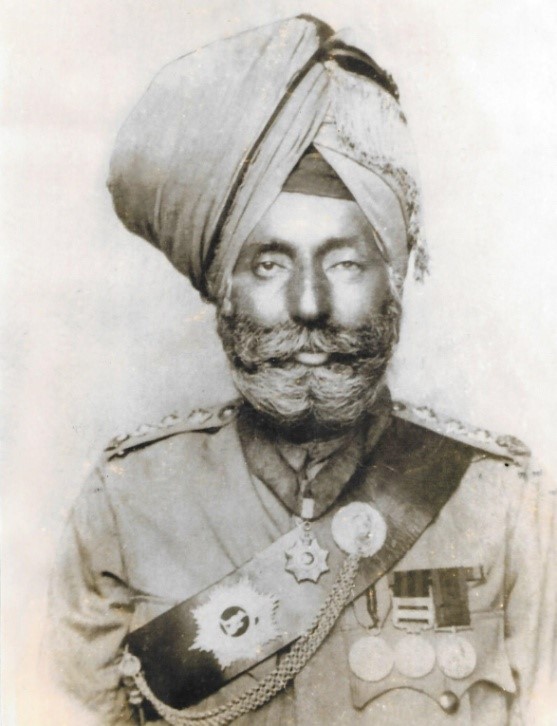SARDAR BEANT SINGH
Early life
Beant Singh was born in Bilaspur village in Punjab Ludhiana district sometime in 1921 or 1922.
He was one of seven children of Captain Hazura Singh Jhaj and Sahib Kaur Deol. When he was a child his parents migrated to Montgomery district, Lahore, Punjab (now in Pakistan; post partition of India)
Beant Singh undertook his lower education in Okara where he finished his matriculation. After Okara Beant Singh went on to study English and Persian at Government College, Lahore University where he graduated with a BA in around 1943. It was at college that Beant Singh first became active in nationalist politics. After graduating, Beant Singh followed in the footsteps of his father and joined the British Indian army where he served for about 2 years.



In 1944 he married Jaswant Kaur Toor. Later in life, in fact shortly before his death in 1995 he was reported as having said that:
“The two most important women in my life have been my mother and my wife. I learnt how to work hard from my mother and the moral values which I have imbibed have been given to me by her” and his wife, he described as his ‘best friend’.
 Father of Beant Singh – Sardar Bahadur Captain Hazura Singh
Father of Beant Singh – Sardar Bahadur Captain Hazura Singh
Beant Singh and his family living as they did in Lahore, thus in a part of the country designated for the new Pakistan, experienced the violence and pain of partition in 1947. The whole family like millions of others were uprooted from their homes. Beant Singh like others left the keys to his house with his Muslim neighbours and friends with the intention of returning when the troubles had ceased, but this never happened.
An old friend of Beant Singh recollected events at partition:
“The first incident that stands out in my memory pertains to the days of partition. In the wake of creation of Pakistan a convoy of many miles long, consisting of Sikhs and Hindus was on its way to India. As we reached Suleman-ki-Head on the Sutlej, a peculiar situation arose. From the Indian side, a similar caravan of Muslims was on its way to Pakistan. The authorities gave the right of passage to the one coming from the Indian side. As this was passing by, the people on our side pounced on the Muslims and started attacking and looting them.
I was about 12 years old at that time and Beant Singh was 25. He was astride a red mare and held a gun in his hand. For many days he had been protecting our convoy with the spirit of a warrior. When he saw that the people whom he had protected all through had suddenly become marauders, he got don the mare, stood in the middle of the road, challenged the looters and killers and shamed them. ‘Don’t you feel ashamed of yourselves? We are all victims. The people whom you attack have also been uprooted from their home and hearth.’
He finally warned them ‘if anyone now moves towards the Muslims, I shall shoot him.’ This had an instant impact and the Muslims crossed the bridge peacefully”
At partition Beant Singh sent his family on ahead of him to the Indian side of Punjab. Beant Singh stayed behind to help secure peoples’ safe passage on the treacherous border crossing. His family were unaware of his whereabouts for about 20 days and whether he was dead or alive.
After the partition of India, Beant Singh settled in the village of Kotli, Payal in Ludhiana district. He settled down initially for a few years maintaining his farm and land.